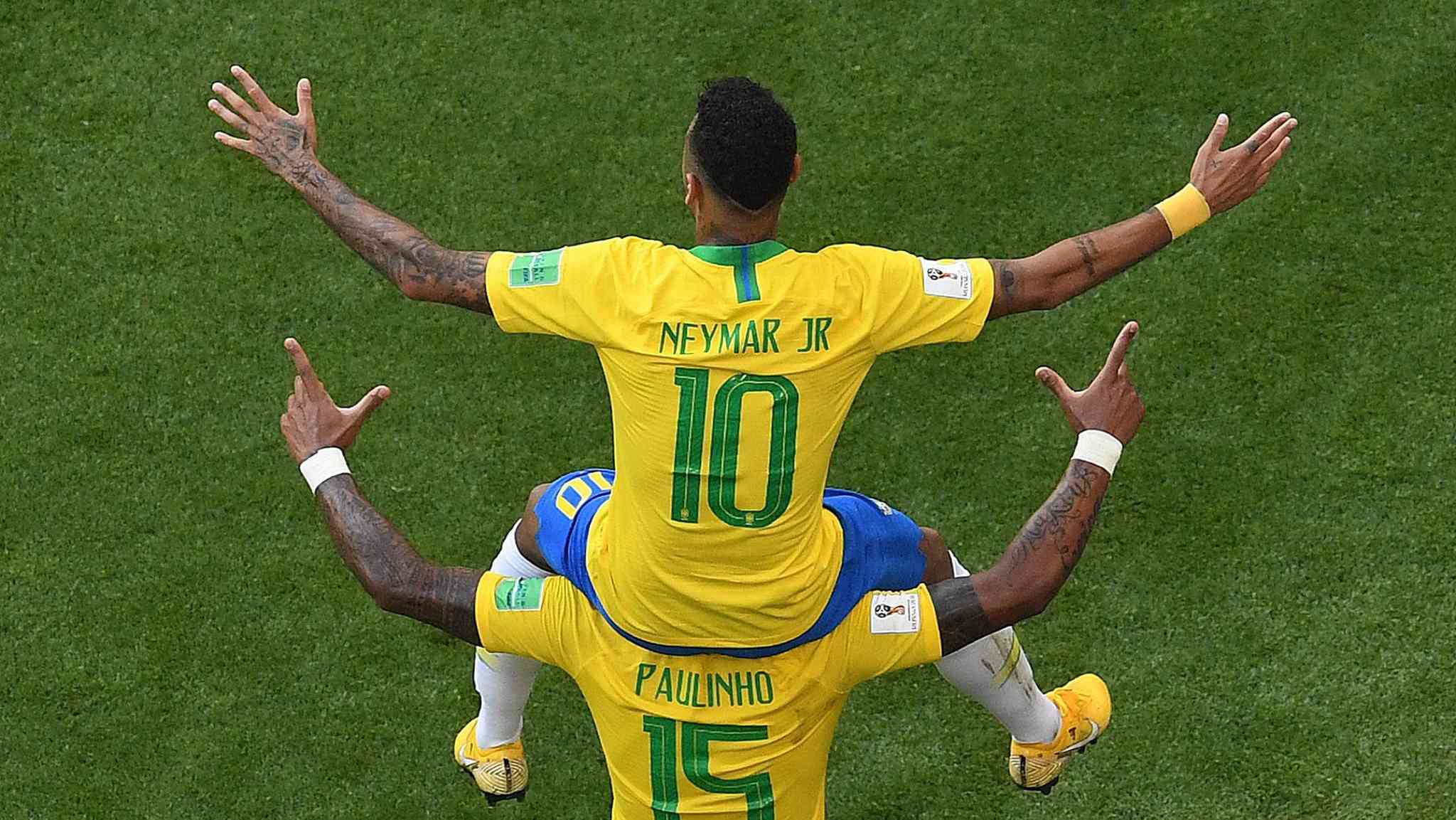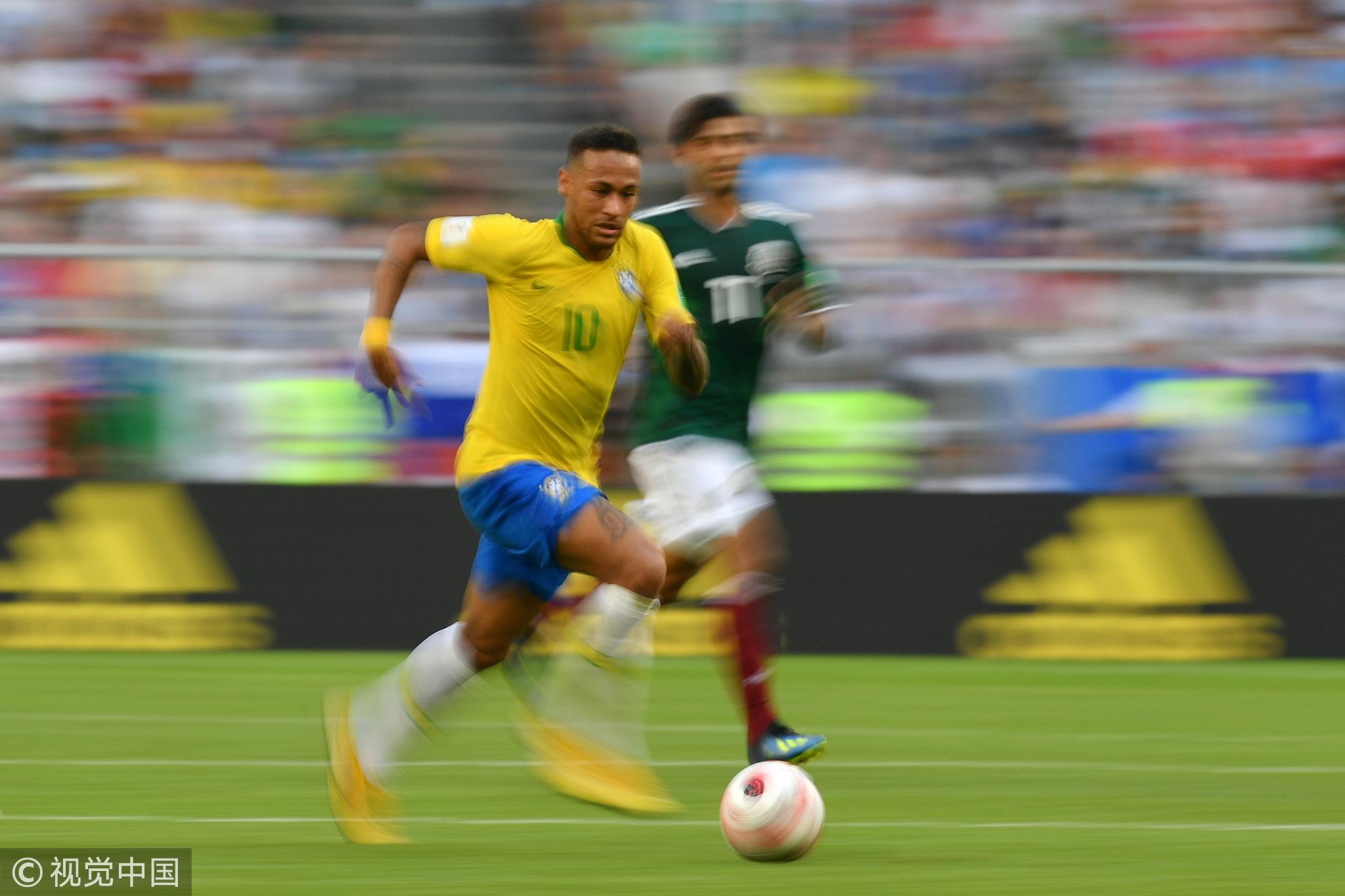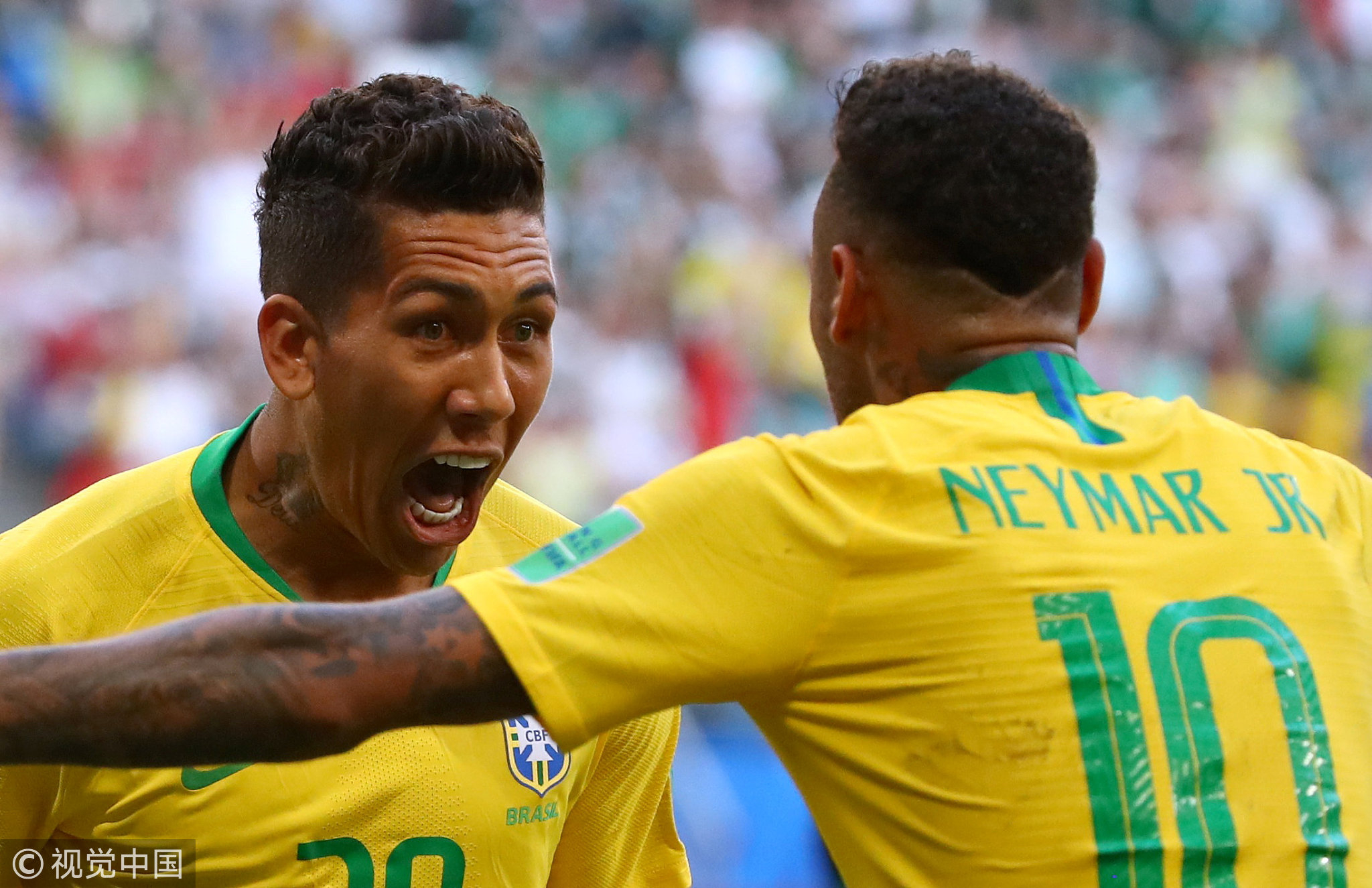
Sports
10:36, 03-Jul-2018
World Cup 2018: Neymar Jr. puts a stake through the heart of samba football
Updated
09:58, 06-Jul-2018
Josh McNally

One of the unbreakable rules of culture is that whatever happened in the 1960s – not the real decade as such, just the hazy idea of The Sixties – was more real and more memorable than anything that came before or since; it's why The Rolling Stones are still a thing and why James Bond will live forever – why Jules Rimet is still gleaming. It's also why the Brazilian national team will pretty much always be graced with a divine footballing right whether they deserve it or not.
Everybody knows Romario, everybody knows Zico; everybody knows Ronaldo and Rivaldo and Ronaldinho. Everybody knows the smooth passes and perfect ball control; not quite tiki-taka, not quite totaalvoetball either, Brazil's samba football was a joy to watch and won titles too, and because it happened in your father's and grandfather's youth, it was also more real than tiki-taka and totaalvoetball. That is why in 2018, it's still what Brazil are known for, even if it often feels like they've spent a decade doing everything in their power to ruin it.
It isn't much of an exaggeration to say Russia 2018 is one of the most important World Cups in Brazil's history. The 7-1 loss to Germany in 2014 is the kind of loss that doesn't so much sting as become a wound if not treated properly, so it was incredibly important that they put in a good performance this time. What actually counts as a good performance depends on who you ask but many, including the team themselves, want nothing less than victory and are fairly obviously going to do anything to get it.

Neymar Jr. runs with the ball during the 2018 FIFA World Cup Russia Round of 16 match between Brazil and Mexico at the Samara Arena on July 2, 2018, in Samara, Russia. /VCG Photo
Neymar Jr. runs with the ball during the 2018 FIFA World Cup Russia Round of 16 match between Brazil and Mexico at the Samara Arena on July 2, 2018, in Samara, Russia. /VCG Photo
In their round of 16 game against Mexico in Samara, their opponents were underdogs. Beating Germany isn't what it used to be, and losing to Sweden is still gauche for a Hispanic side, but they came out swinging. Using the same tactics that got them this far, El Tri swarmed Brazil up the pitch, using their pace early to stretch what the South American side would probably consider to be their midfield, only when they reached Brazil's goal, they repeatedly came up empty. An early attempt from Javier "Chicharito" Hernandez found him squashed under goalkeeper Alisson, a sign that the game to come would be contested under the rules of Big Time Charlie: The more famous the team, the more they will get away with.
By half time, the game was evenly matched. Equal possession, same amount of corners and shots off-target but the story was in the shots on-target and fouls. Brazil and Mexico had more respectively, showing that the Selecao had a slight advantage. The second start in particular is important. Brazil, more so than anyone else in the tournament, is a team of brats, and instead of the rhythmic, ever-watchable style of old, their new game plan is to drop to the floor in agony regardless of if their opponent goes in two-footed or runs close enough by to hit them with a gentle breeze.
This has been the way since at least 2010 and, even if we are told otherwise, it is still the way under new coach Tite, which is why the second half was an incredibly frustrating watch. As Brazil started to figure out Mexico's plan and countered the counters, they flooded the Mexican box, and five minutes into the second half, forced goalkeeper Guillermo Ochoa – a veritable wall in front of goal – to commit too early, giving Neymar Jr. room to knock it in. It wasn't exactly Carlos Alberto in the final of Mexico '70, but it will do.

Brazil's Roberto Firmino celebrates scoring their second goal with Neymar Jr. during the 2018 FIFA World Cup Russia Round of 16 match against Mexico at the Samara Arena on July 2, 2018, in Samara, Russia. /VCG Photo
Brazil's Roberto Firmino celebrates scoring their second goal with Neymar Jr. during the 2018 FIFA World Cup Russia Round of 16 match against Mexico at the Samara Arena on July 2, 2018, in Samara, Russia. /VCG Photo
With almost all the second half left to play, Brazil tried to kill the game. Spain did the same thing unsuccessfully against Russia only a day earlier, but the key difference is that they kept the ball in play while doing it, acting like they were considering a second goal. Brazil simply began timewasting. Even if his club career, playing alongside Lionel Messi and Luis Suarez at Barcelona and being the face of Ligue 1's Paris Saint-Germain (alongside Edinson Cavani and Kylian Mbappe), has insulated him from any real challenge, Neymar Jr.'s talent is undeniable. And as Messi and Cristiano Ronaldo, at the ripe old ages of 31 and 33, are in the twilight of their career, he's poised to be the next big deal, and yet he cannot resist ruining games with dives and emotional outbursts.
Maybe his star turns in Vin Diesel's "XXX: Return of Xander Cage" and Oppo's Find X advertising campaigns have convinced him he's a double threat, but instead of combining the physicality of sport with the expressiveness of screen acting, he's like the footballing equivalent of Al Pacino, only on a scene-by-scene basis, he goes back and forth from Michael Corleone and Vincent Hanna. A perfectly weighted first touch will begin a run full of twists and turns through the opposition – and then he will get fouled and throw himself to the ground like he's been on the receiving end of a sniper's bullet. Mexico's Miguel Layun deserved a red card for stepping on his ankle in the 70th minute, but Neymar Jr.'s reaction was pure pantomime so nobody – not even the VAR – believed him.
When substitute Roberto Firmino made it 2-0 in the 89th minute, scoring off a Neymar Jr. assist that was intended to be a goal itself, he celebrated with all his heart, as if he had done it himself. This is his team. In the quarterfinal game against Belgium, he can either be the talisman or he can be the Achilles heel, but he cannot be Pele and he never will be.

SITEMAP
Copyright © 2018 CGTN. Beijing ICP prepared NO.16065310-3
Copyright © 2018 CGTN. Beijing ICP prepared NO.16065310-3